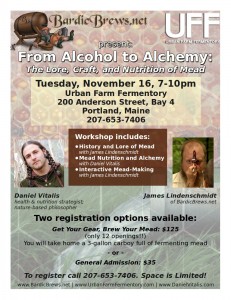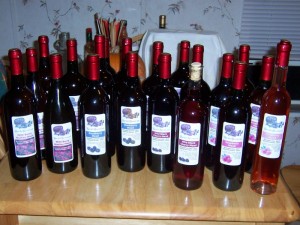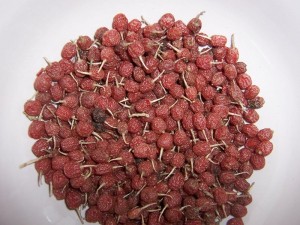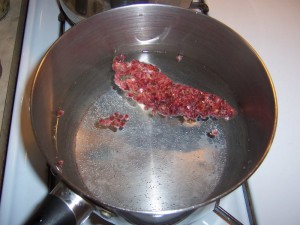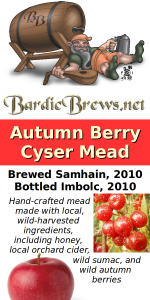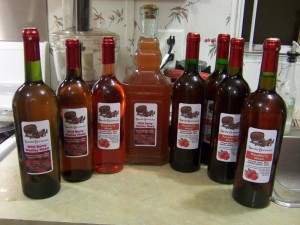I’d never even heard of elecampane before, until I heard an herbalist called Sean Donahue was moving to Maine. I read about his story dealing with asthma, getting great results with elecampane, and immediately felt inspiration and resonance:
Its a familiar archetype: the bookish, asthmatic child whose imagination is captivated by stories of other worlds that sound more like home than this one. At once distant and emotionally sensitive. At times deeply empathetic and perceptive and at other times completely oblivious to social norms and cues. Asthma in these cases is often closely associated with social anxiety. Breath is a tenuous thread barely keeping the child present in this reality….
Elecampane is a medicine that reaches deep into the lungs and gets things moving again — releasing and cleansing buried grief just as it brings up old, infected mucus.
I decided I wanted to do a medicinal mead, incorporating elecampane, to treat my asthma.
I also decided to add some additional herbs to the mixture. I wanted to include rose hips, because they are in season and a great source of vitamin C; schisandra berries, because they’d add more adaptogens and other nutrients; St Johns Wort, because it helps elevate the spirit allowing one to breathe more deeply, and mullein, which is a great lung tonic.
In researching how each of these herbs should be prepared, I decided to make a decoction with the elecampane, rose hips, and schizandra berries, and an infusion with St John’s Wort and mullein.
I began the decoction with 2c rose hips, 1c elecampane, 1/4 c shizandra berries, 2 gallons spring water, and simmered it for 1 hour:
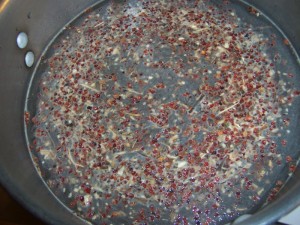
After an hour, I turned off the heat and added the infusion herbs: 1/2c St Johns Wort and 1/2c Mullein:

I let this cool overnight and strained it the next day, leaving me with a gorgeous, deep brown, very potent-tasting tea:
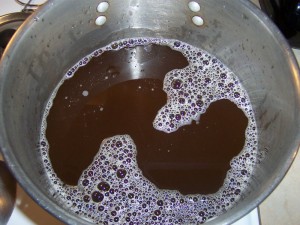
I poured it back into my stockpot and added about 3/4 of a gallon of honey. I don’t want this medicinal mead to be too sweet, so I was shooting for 15% alcohol potential. I took a few readings, adding a bit of honey or spring water to get the desired result:
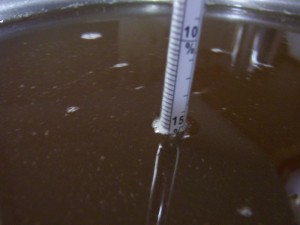
As you can see it’s a bit above 15%, not quite 16%, but I knew I’d be topping off the carboy with extra water to get it to 3 gallons. So I pitched the yeast and transferred the must into the carboy, shook it up, gave it some positive juju, and wound up with a beautiful carboy:

Looking forward to being with this medicine in 2011.
UPDATE (Feb 27): I just racked the elecampane into jugs. Fermentation had definitely stopped; there was no bubbling and the mead was “dead”, which is just a subjective observation that there was no life remaining in the mead. Much to my surprise, with a low initial alcohol potential of 15%, the mead still tastes quite sweet. I took a hydrometer reading and got 5%, which means this mead is only 10% alcohol. Admittedly I’m somewhat puzzled by this, since this mead sat for 4 months in fermentation. Perhaps one of the herbs is a fermentation inhibitor, and is unfriendly toward yeast? I think I shall let these jugs sit for a few months and then take another reading. Not sure if there is any live yeast left in the jugs or not….
UPDATE (Mar 15): It was almost certainly the elecampane, which is used in antifungal and antiyeast protocols. Now the question is, do I try adding another yeast to get it to ferment some more, or just drink it as is?
UPDATE (Apr 11): The two gallons of mead have cleared somewhat, and I’ve been sipping on the top of the batch for a while. I really love this medicine. I wanted to bottle one of these gallons to capture it as it is now, and I wanted to experiment with the other gallon by tincturing more elecampane herb in the alcohol of the mead.
So for the first gallon, I added about 2 TBSP of dried elecampane root to tincture, which floated at the top and will slowly start to sink down in the coming days:
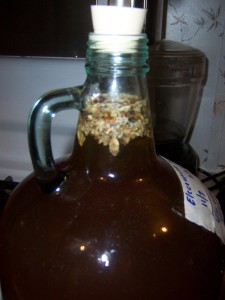
With the other gallon, I simply bottled it into 10 extremely handy 12oz grolsch bottles:

I drink about 4oz of this medicine per day when I’m using it, so a bottle will last me 3 days. I’m grateful for this powerful medicine, and I look forward to seeing how the other gallon with the tincture will turn out.
So far, my favorite quote about this batch is: “the Elecampane Mead is far from my best tasting mead. However, it is by far the best tasting asthma medicine I’ve ever used.”








